These reflections are a result of more than 40 years of ministry as a Roman Catholic priest. Most of these years I spent in the Diocese of Charlotte which covers Western North Carolina. Now I am retired, and live in Medellín, Colombia where I continue to serve as a priest in the Archdiocese of Medellín.
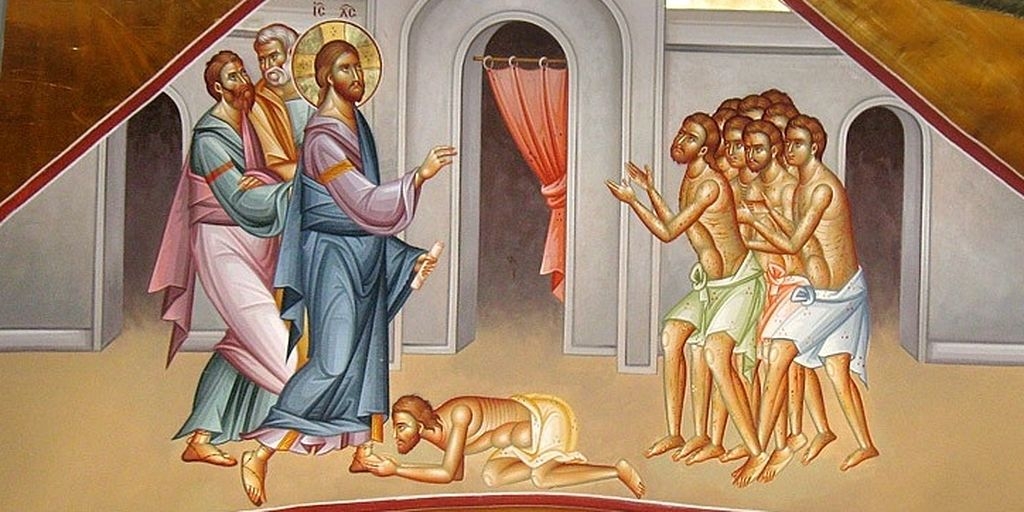
And one of the lepers, realizing he had been healed, returned, glorifying God in a loud voice; and he fell at the feet of Jesus and thanked him. He was a Samaritan. Jesus said in reply, "Ten were cleansed, were they not? Where are the other nine? Has none but this foreigner returned to give thanks to God?" Then he said to him, "Stand up and go; your faith has saved you." (Lk 17:11-19)
How important is our weekly gathering to celebrate the Eucharist (literally “to give thanks”): to give thanks for all that Jesus did to save us, to give thanks for all the blessings we have received. In the gospel story of the cleansing of the lepers, all ten lepers were healed, but only one was saved—the one who returned to give thanks to the Lord.
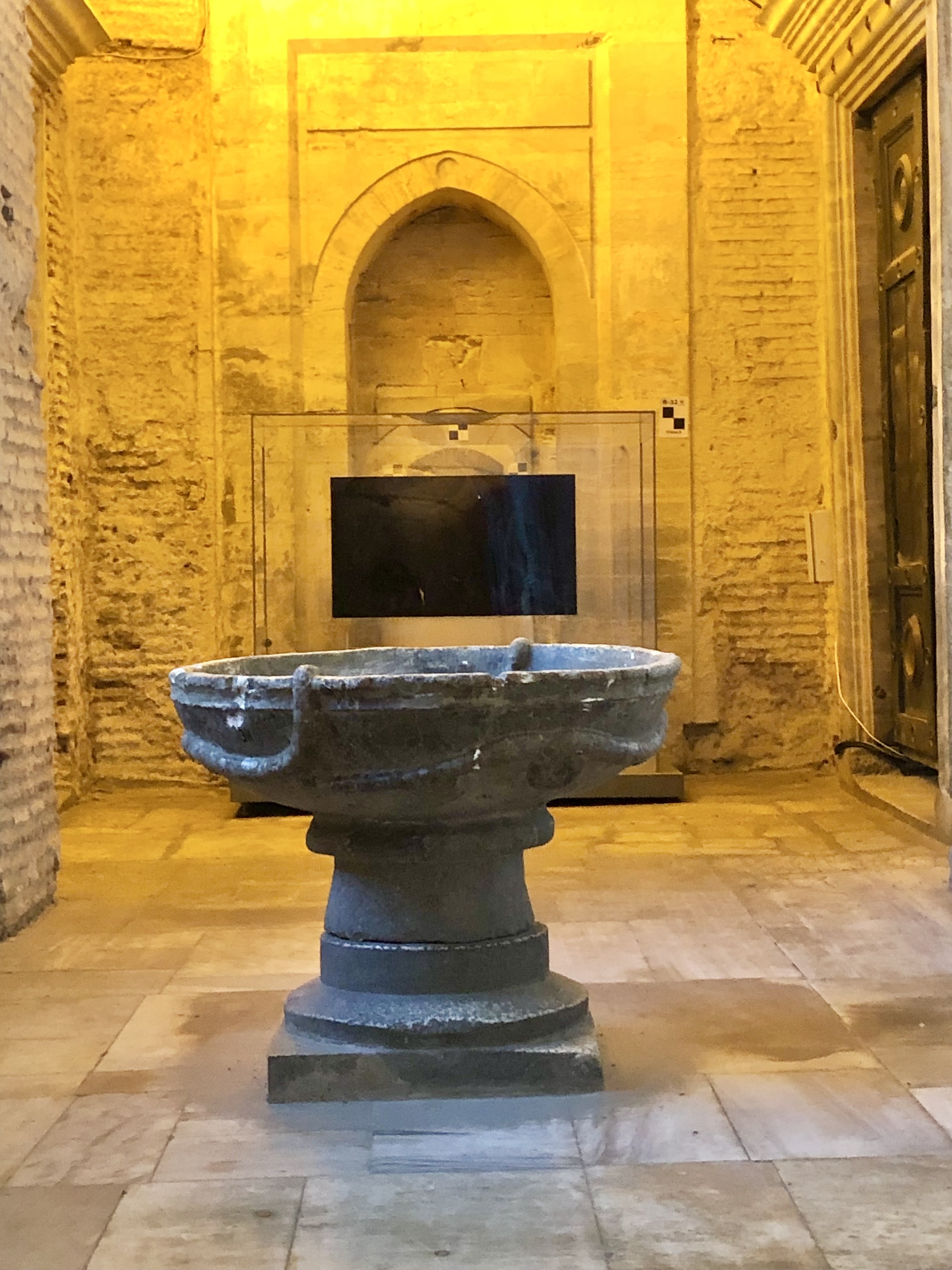
For through faith you are all children of God in Christ Jesus. For all of you who were baptized into Christ have clothed yourselves with Christ. There is neither Jew nor Greek, there is neither slave nor free person, there is not male and female; for you are all one in Christ Jesus. (Gal 3:22-29)
How radical is our baptism! Baptism makes us a new creation in Christ. It erases all distinctions and makes us one in Christ Jesus. No wonder the Virgin Mary sings God’s praises. “My soul proclaims the greatness of the Lord.” The photo today is of the baptistery in Hagia Sophia, Istanbul, Turkey.
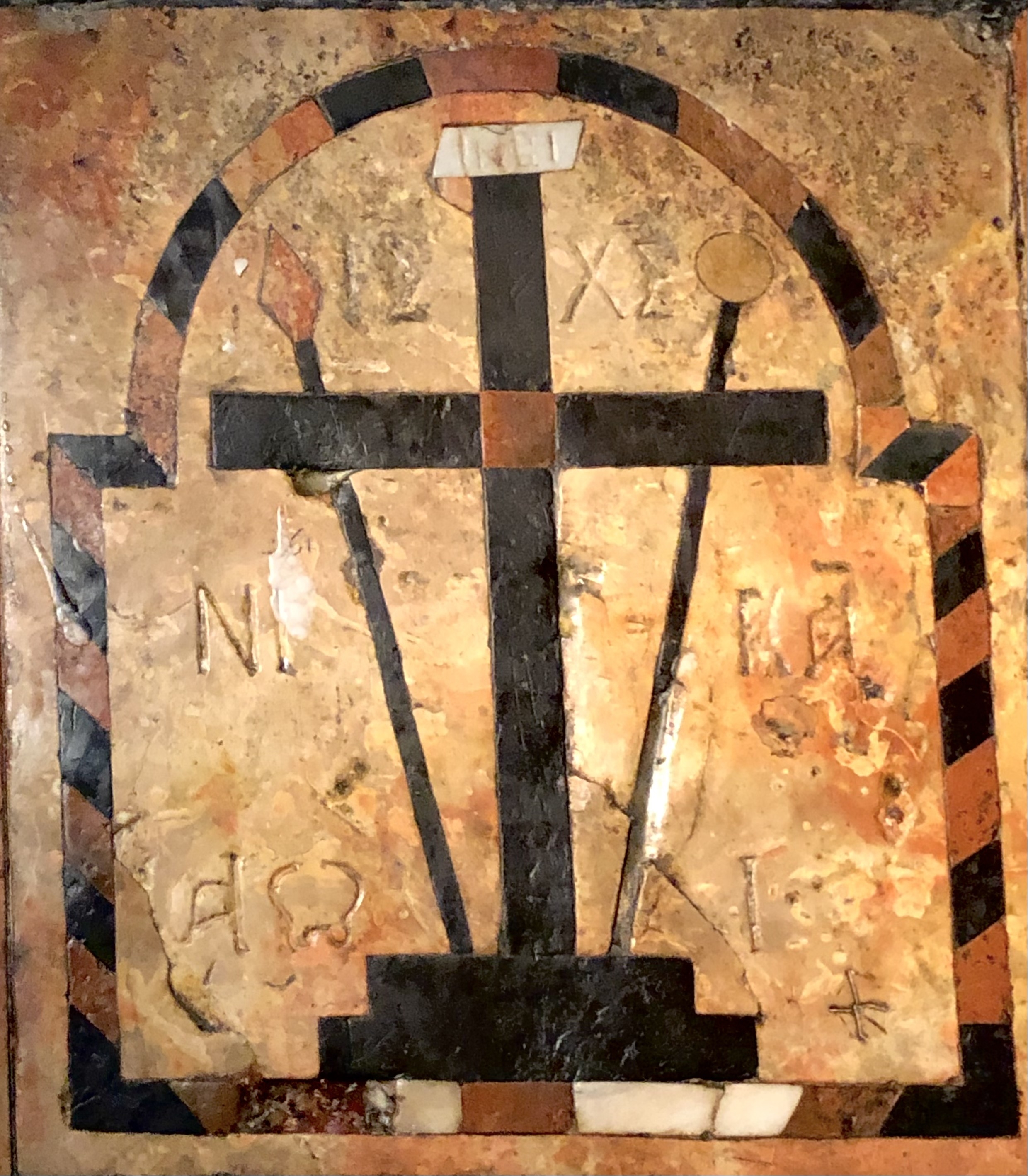
Christ ransomed us from the curse of the law by becoming a curse for us, for it is written, Cursed be everyone who hangs on a tree,
that the blessing of Abraham might be extended to the Gentiles through Christ Jesus, so that we might receive the promise of the Spirit through faith. (Gal 3:7-14)
“Cursed be everyone who hangs on a tree” is a quote from Deuteronomy 21:23 about executed criminals. The “Scandal of the Cross” is that Christ’s death on the Cross meant that according to the Scriptures Jesus died damned by the world and damned by God. The Resurrection is God’s vindication of Jesus. We meditate and pray this Mystery of Faith in the Rosary of the Blessed Virgin Mary.
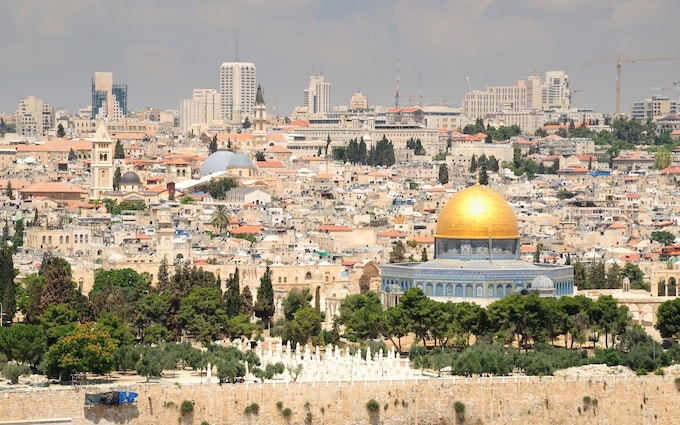
Today we arrive in the Holy City, Jerusalem.
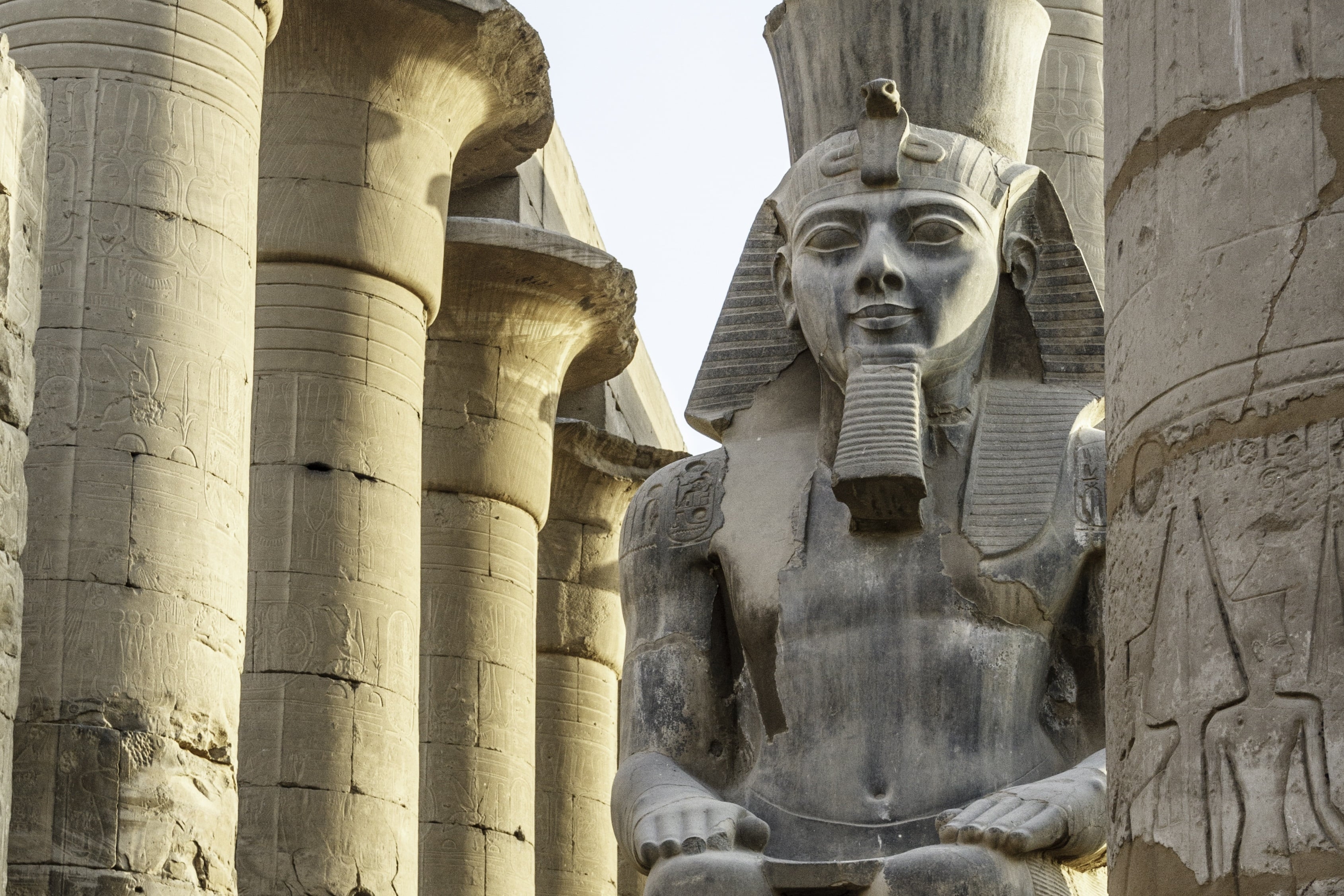
Today we land in Egypt and begin a four-day cruise on the Nile to visit the temples of Luxor and Aswan.



